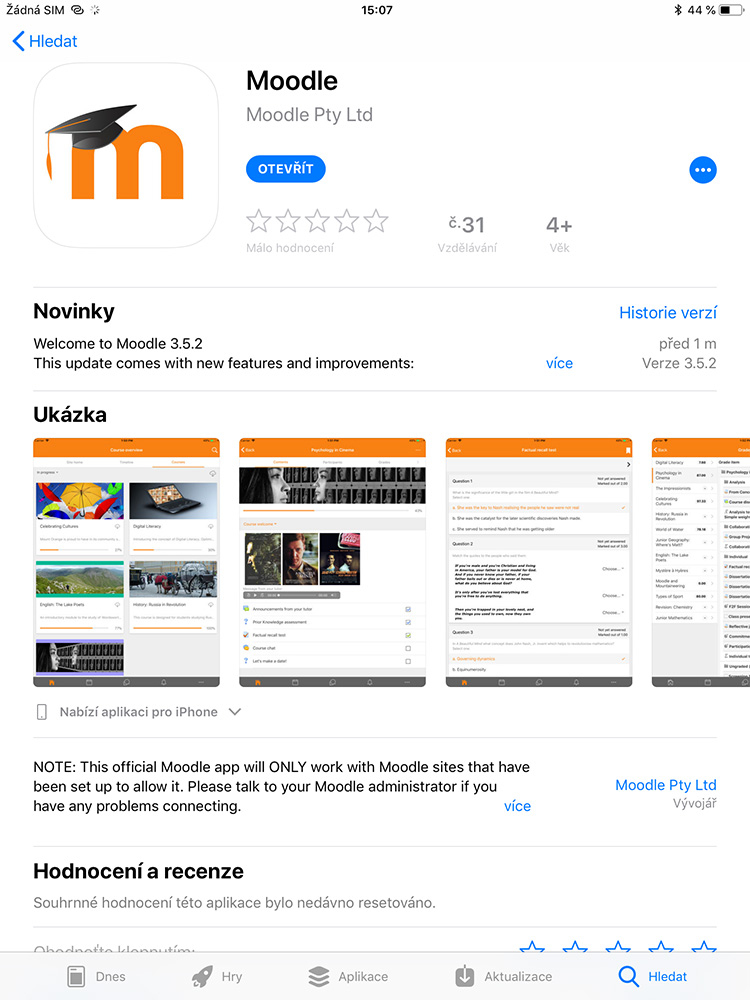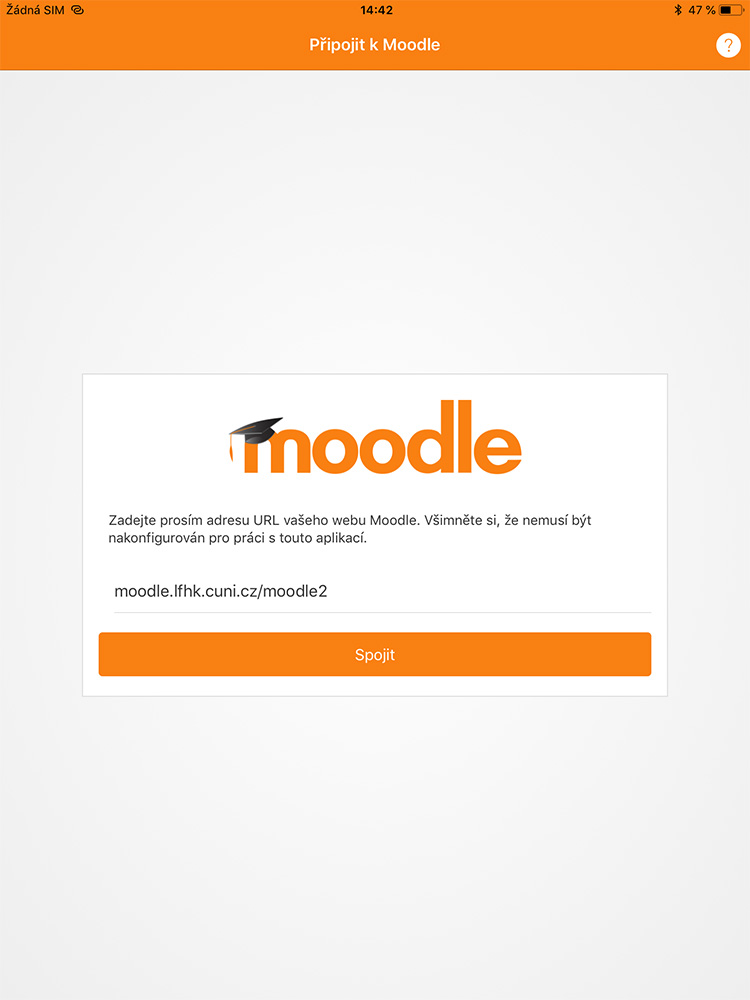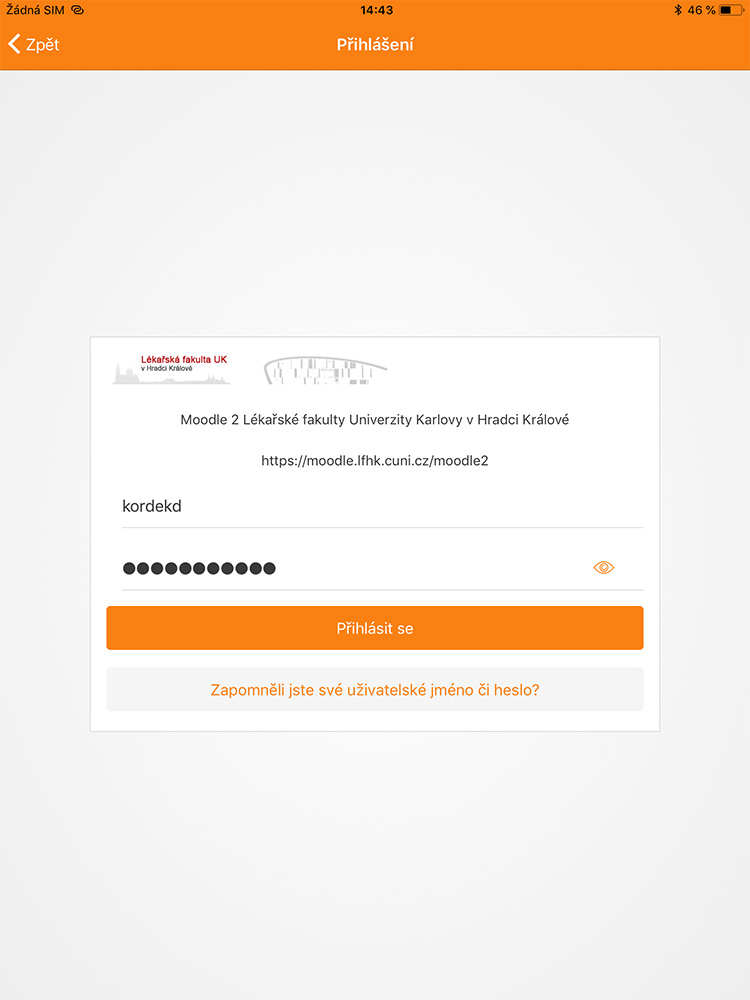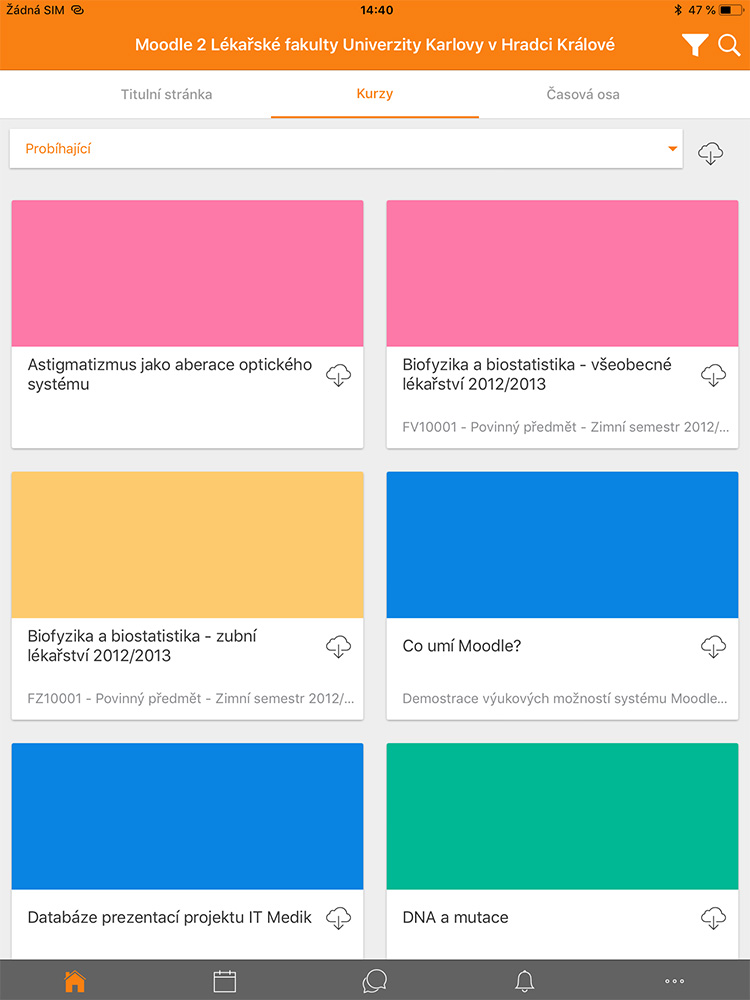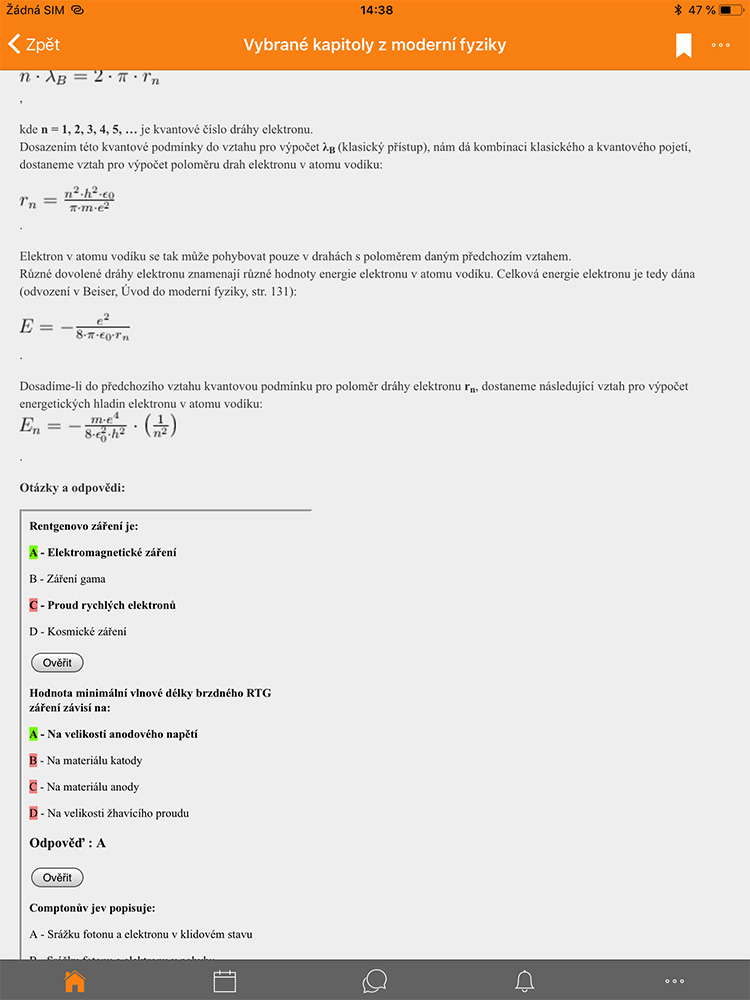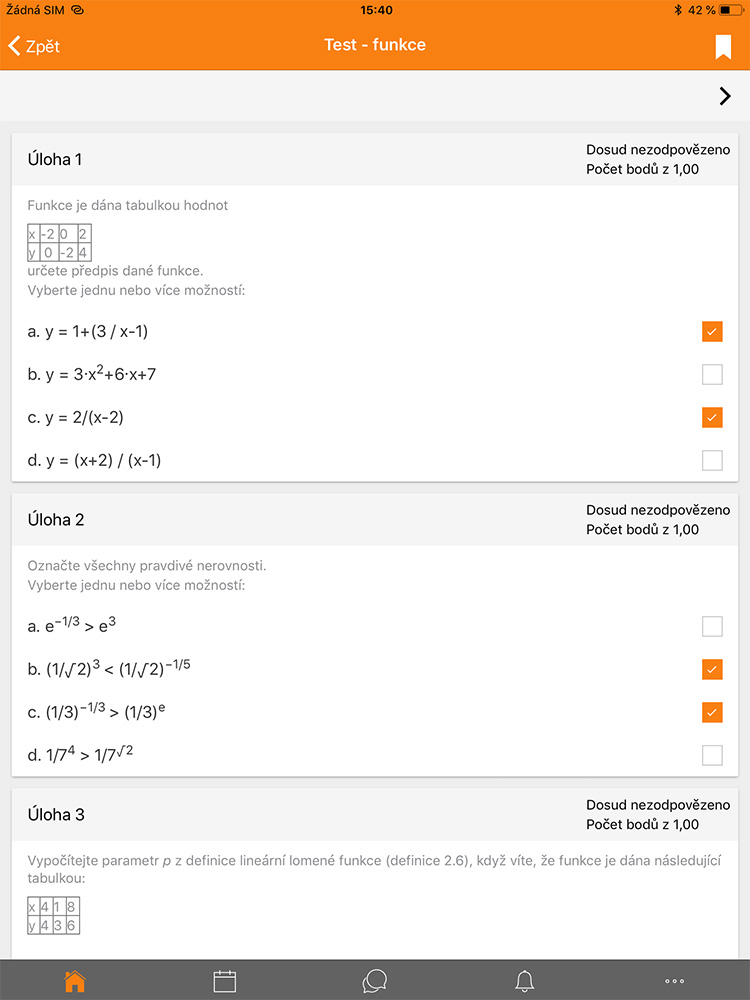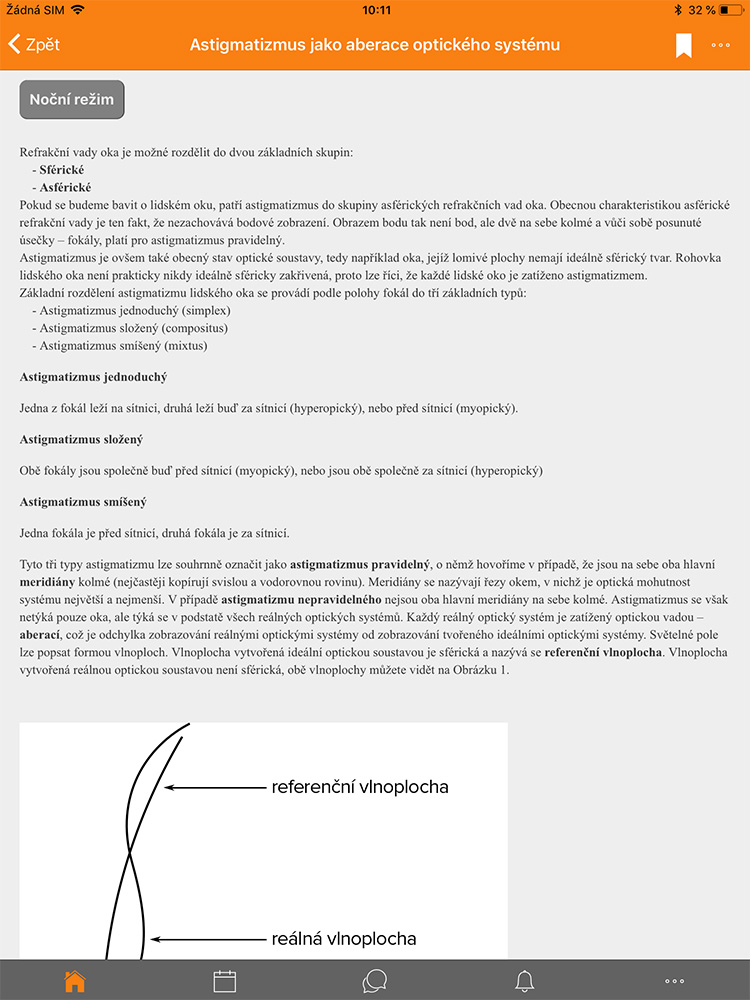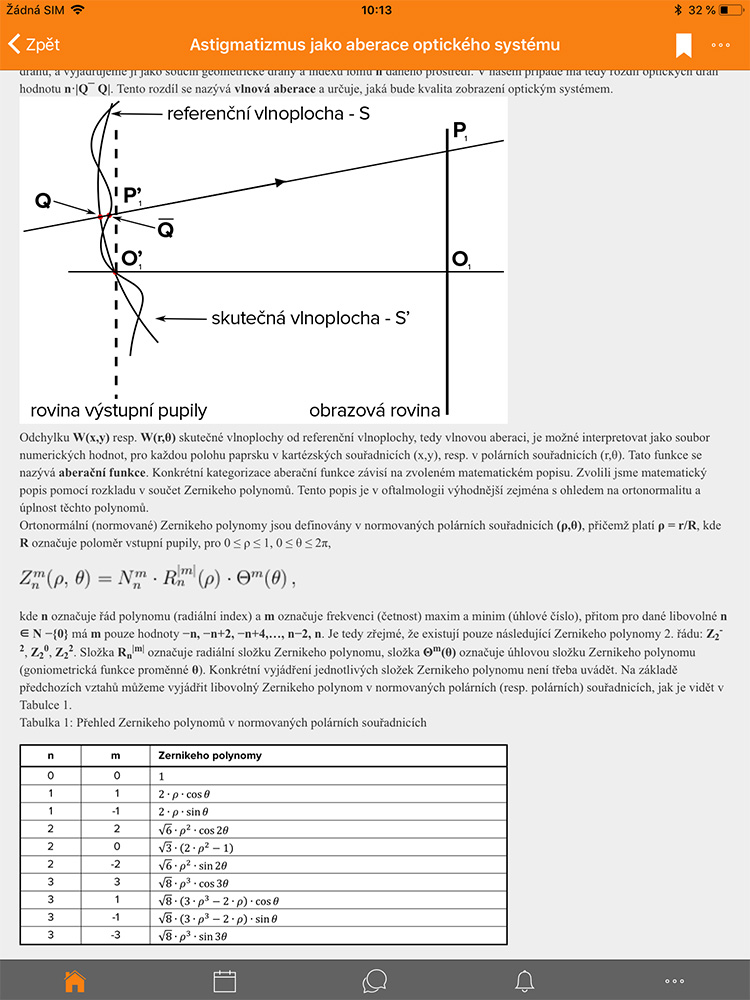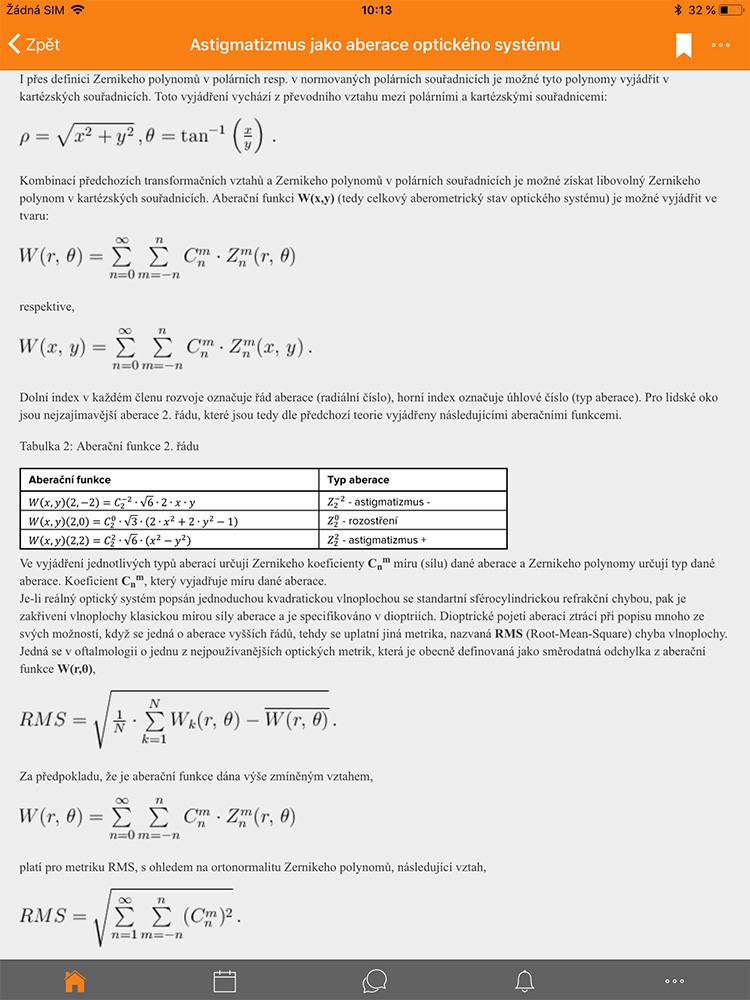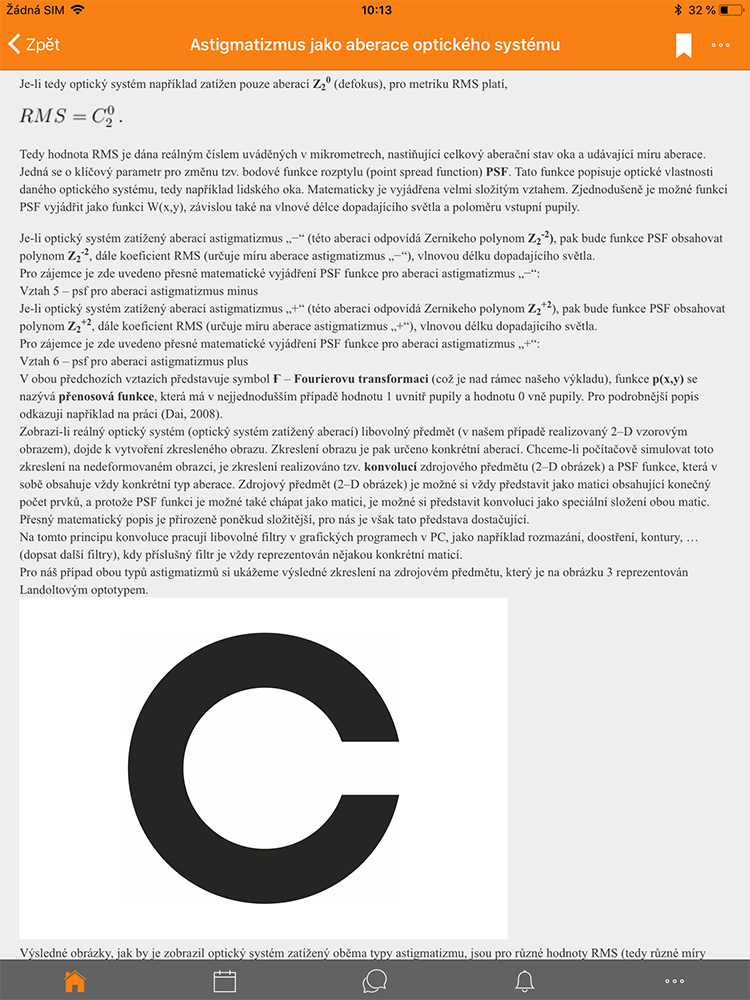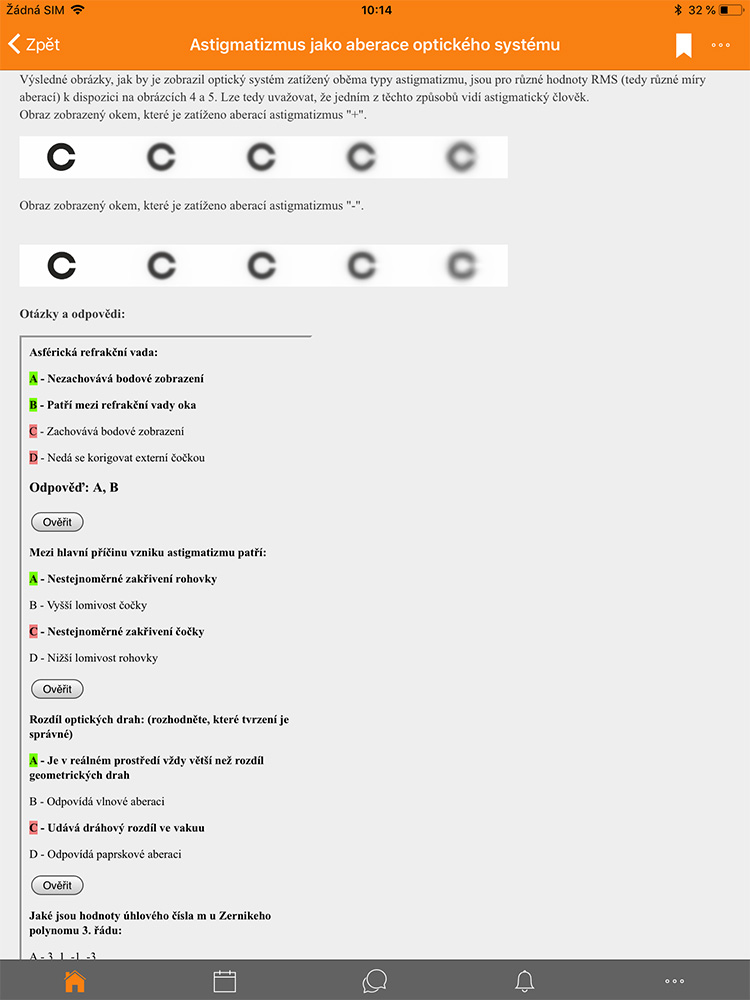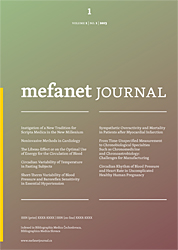
MEFANET Journal 2019; 6(1): 18-22
TUTORIAL
The use of LMS Moodle and Moodle Mobile App in educational process at the Faculty of Medicine in Hradec Králové
David Kordek*, Martin Kopeček
Department of Medical Biophysics, Faculty of Medicine in Hradec Králové, Charles University, Hradec Králové, Czech Republic
* Corresponding author: kordekd@lfhk.cuni.cz
Abstract
Article history:
Received 11 June 2018
Accepted 3 July 2019
Available online 11 July 2019
Download PDF
In the initial part of the contribution the reader is made familiar with the main aim of the project, the individual phases of the project and planned outputs of the project. In the second part of the contribution there is a description of the possibilities of e - learning in general and at the Faculty of Medicine in Hradec Kralove, where the program LMS Moodle has been used for e-learning for 8 years. With regards to the project timetable it´s possible to present to the reader the results of the questionnaire and the elaborated electronic courses. In the part about methods and materials the readers get to know the Moodle Mobile App, there is a description of its possibilities of use when working with the courses and it takes into account the experience of the authors at our faculty. The conclusion of the contribution thus concludes the possibilities of use of the Moodle Mobile App and is different from the project that is in its first phase.
Keywords
E-learning; Moodle Mobile; e-learning courses; students
Figure 1. Installation package Moodle Mobile on App Store
Figure 2. a) Connecting to the Moodle LFHK web server, b) Introducing the login information in the Moodle Mobile App
Figure 3. a) Virtual library, b) Interactive complement of the “book”
Figure 4. Test in the Moodle Mobile App
Figure 5. The module “Textbook” in the course “Astigmatism as the aberration of an optical system”
Introduction
The aim of the project is to create e- learning courses optimized for the Moodle Mobile App in biochemistry, biology and biophysics. The reason for the preparation of these courses is the increased interest of our students in mobile applications. Our motivation is thus to provide higher quality of study conditions and materials for our students when self – studying. The topics that were elaborated were chosen according to the questionnaire. The questionnaire was filled in by 1st, 2nd and 3rd year students who chose from the topics that were offered to them, 4 topics from each subject that they would like to be elaborated in the form of e- learning. The results of the questionnaire are available at the time when this article is being prepared. After the questionnaire has been evaluated the resolvers´ team chose four topics with the highest frequency from the three above mentioned subjects. And thus the topics with the highest frequency are as follows,
- Biology: epigenetics, gene therapy, invasiveness and metastasis, fundamentals of biological therapy,
- Biochemistry: vitamins as cofactors for enzymes, biological oxidation + RONS, acid-base balance, composition and basic urinalysis,
- Biophysics: biomechanics of muscle and bone, biomechanics of breathing, astigmatism as the aberration of an optical system, selected chapters of modern physics.
In the second phase of the project the resolvers´ team prepared materials and created e-learning courses optimized for the Moodle Mobile App. The authors took advantage of their experience gained when preparing previous courses. The courses structure will be subject to the optimization for the Moodle Mobile App. And thus the courses structure is as follows:
- communication with the students - forum, chat
- study material – book + multiple - choice questions directly in the text of the book
- summary of the studying material – summary
- review test – test
In the concluding phase of the project the resolvers´ team will create a questionnaire to be filled in by 1st, 2nd and 3rd year students. This questionnaire will provide the authors with an important feedback, especially concerning the comparison of the courses application in LMS Moodle and the Moodle Mobile App. On the basis of the questionnaire results the authors will focus on the courses modification eventually on the Moodle Mobile App modification.
At first it´s necessary to mention the growing influence of mobile devices (e.g. tablets, mobile phones, e-readers,...) in teaching. In general this increase is most evident in lower years of schools. The above mentioned increase is also related to the increased interest of the society in mobile technology and related mobile applications. With regards to education, e-learning is becoming more and more popular. There are more forms of e-learning and it´s not the aim of this article to divide them and characterize them. In this contribution we will only concentrate on the LMS (Learning management system) Moodle and its mobile application Moodle Mobile. It´s an application that contains some online tools for organization of the lessons and communication with the students (e.g. chat, forum, news,...) and it also includes some components that enable to get feedback about students´ knowledge and attitudes (e.g. questionnaire, test, survey, …). It also makes the studying materials available for students (e.g. book, lecture, …).The students can hand in their homework as well. The basic unit is a Moodle course that can include the above mentioned components. If a quality course is created (not only from the point of view of the content), the participation of the pedagogical staff is not necessary when filling in. Our faculty, especially the Department of Medical Biophysics has many years of experience with e-learning as it´s obvious from the papers [1–3].
At the faculty e-learning in Moodle is carried out at the address moodle.lfhk.cuni.cz. The students have access to all e-learning courses at this address. In these courses there are e.g. interactive manuals for practical exercises, in which the scientific and didactic attitudes to the given problem are combined. As an example e.g. laboratory assignment of measuring rigidity of a nitinol stent, where the theory of this assignment is based on [4,5]. This practical assignment is carried out at the Department of Medical Biophysics. Furthermore seminar materials are included. The courses may also cover optional courses.
Materials and methods
The Moodle LFHK portal is divided into several basic categories: Czech courses, English courses, Preparatory course, the Dean's Advisory board, Study Division and u3v. The Czech and English courses are important for medical students. In both categories there are subcategories called according to individual workplaces in alphabetical order. The workplaces are in charge of managing the categories and its courses. However the Moodle LFHK is not optimized for mobile devices and thus is not really appropriate e.g. for the use on a mobile phone, especially because of a long list of workplaces that can be further divided into subcategories. The student can see all categories and courses including those that they don´t need yet. If the students want to use the courses in a comfortable and effective way in a mobile device, it´s better to use the mobile application Moodle Mobile app. This application is an application that is very well optimized for Android OS and iOS. The student can get the application for free through Google Play or App Store. Or it´s possible to get access to the application at the link https://download.moodle.org/mobile/, where is also some general information about the application (Figure 1).
Installation of the Moodle Mobile app is a standard installation for both supported OS. After successfully installing the application into the mobile device the student must fill in the webpage address moodle.lfhk.cuni.cz/moodle2 on the initial screen of the application and then click on “connect” as can be seen in Figure 2a. As the next step the students must introduce their username, that they use to log in the web Moodle and password, as in Figure 2b.
Once the student has logged in the Moodle LFHK the home page appears, where after clicking on the “courses” button the student can see all courses in which they have enrolled (My courses). The student can only see courses in which they had previously enrolled and thus they have a virtual library of their courses in web Moodle LFHK. Furthermore the student can use the application to send messages to other students or teachers. They can thus interact with other participants of the course without logging out of the application. They can also see their evaluation and the events in the calendar. Besides that the application offers the possibility to save the so called personal files in one´s profile and to download files from individual courses from the so called public files. The above mentioned virtual library of courses “My courses” is essential for the use of the application. It is a list of enrolled courses of the student and thus each student may have a different list. An example of a virtual library can be seen in Figure 3a.
If the study material “book” is part of the course, the student can see this component Moodle directly in the application. Internet connection is necessary for initial loading of the book. However the advantage of the application is that when reloading the book in the given course, the student doesn´t need the Internet connection anymore. The study materials in the form of a book are available in the students´ mobile device.
As a part of the module “book” the authors of the courses are offered a created complement that enables to include multiple choice questions in the book that the student can answer in an interactive way anywhere in the text of the book. An example of this complement is available in Figure 3b. The version Moodle 3.1 (and higher version) enables to fill the tests in individual courses in the Moodle Mobile app. There was not this function in the previous versions and thus the student was redirected by the application to the web Moodle LFHK, where filling the test on a mobile device is not as optimized as in the application. And so this possibility can be considered another undeniable advantage of the Moodle Mobile app. Now it is also possible to attend a module "lecture" in this application. The lecture is among the activities in Moodle, in which the presence of the teacher is not necessary, but even so the student can go through the whole topic including feedback. An example of a module “test” can be seen in Figure 4.
Results
An example of a completed course can be seen in Figure 5.
Conclusion
With regards to the students´ feedback, the Moodle Mobile app is a welcome complement for their self – study. However it´s necessary to be very careful while creating the courses optimized for Moodle Mobile, especially when inserting pictures and videos directly into the study materials “book”. The pictures inserted in the text should have good resolution. Of course the pictures adapt to the tablet or mobile phone display, but as it has been already said, the book is downloaded into the device for offline use. Besides that, it is thus recommended to insert all pictures and videos in full resolution as independent files. The student doesn´t have to download the files, when they don´t need them and save the memory of their phones. Obviously, the application is not intended for creating courses, the author must create them in the web environment Moodle. However, the application is very useful especially for institutions, where they don´t have a computer classroom and the teachers want to write a test in Moodle with their students. They can just lend the students tablets and it´s possible to write the test e.g. in a microscopic laboratory or an ordinary classroom.
E.g. the Department of Histology and Embryology at our faculty do just that.
Acknowledgement
This work was supported by the project MŠMT IP 2016-2018 63.
References
1. Hanuš J, Nosek T, Záhora J, et al. On-line integration of computer controlled diagnostic devices and medical information systems in undergraduate medical physics education for physicians. Phys Med 2013; 29(1): 83–90.
2. Hanuš J, Záhora J, Mašín V, et al. On-Line Incorporation of Study and Medical Information System in Undergraduate Medical Education. In: 6th International Conference of Education, Research and Innovation (iceri 2013). Proceedings, Seville, Spain, 2013: 1500–1507. ISBN 978-84-616-3847-5.
3. Záhora J, Hanuš J, Jezbera D, et al. Remotely Controlled Laboratory and Virtual Experiments in Teaching Medical Biophysics. In: 6th International Conference of Education, Research and Innovation (iceri 2013). Proceedings, Seville, Spain, 2013: 900–906. ISBN 978-84-616-3847-5.
4. Bezrouk A, Balský L, Smutný M, et al. Thermomechanical properties of nickel-titanium closed-coil springs and their implications for clinical practice. Am J Orthod Dentofacial Orthop 2014; 146(3): 319–327.
5. Záhora J, Bezrouk A, Hanuš J. Models of stents – Comparison and applications. Physiol Res 2007; 56: 115–121.
Kordek D, Kopeček M. The use of LMS Moodle and Moodle Mobile App in educational process at the Faculty of Medicine in Hradec Králové. MEFANET Journal 2019; 6(1): 18-22. Available at WWW: http://mj.mefanet.cz/mj-20180611.
This is an open-access article distributed under the terms of the Creative Commons Attribution-NonCommercial-ShareAlike 3.0 License (http://creativecommons.org/licenses/by-nc-sa/3.0/), which permits unrestricted use, distribution, and reproduction in any medium, provided the original work, first published in the MEFANET Journal, is properly cited. The complete bibliographic information, a link to the original publication on http://www.mj.mefanet.cz/, as well as this copyright and license information must be included.
